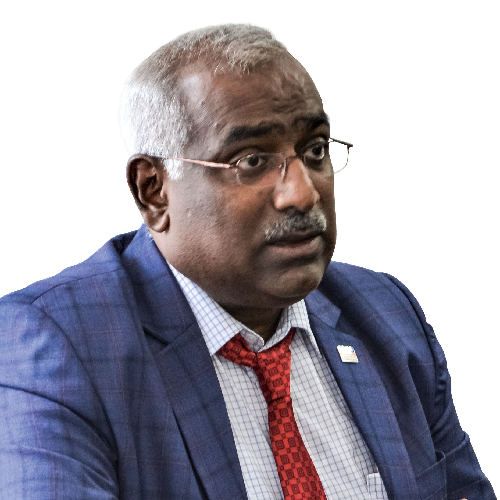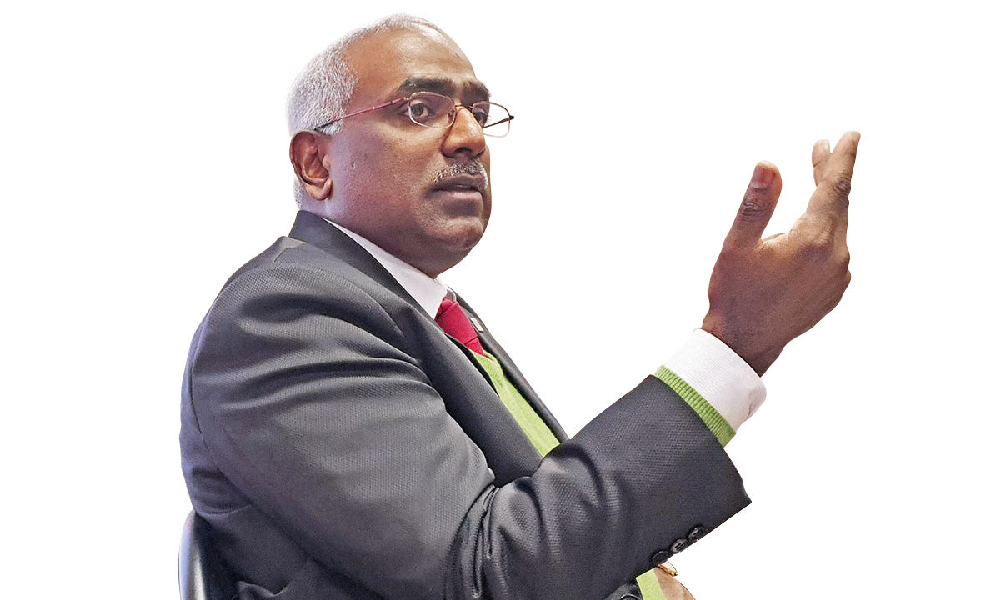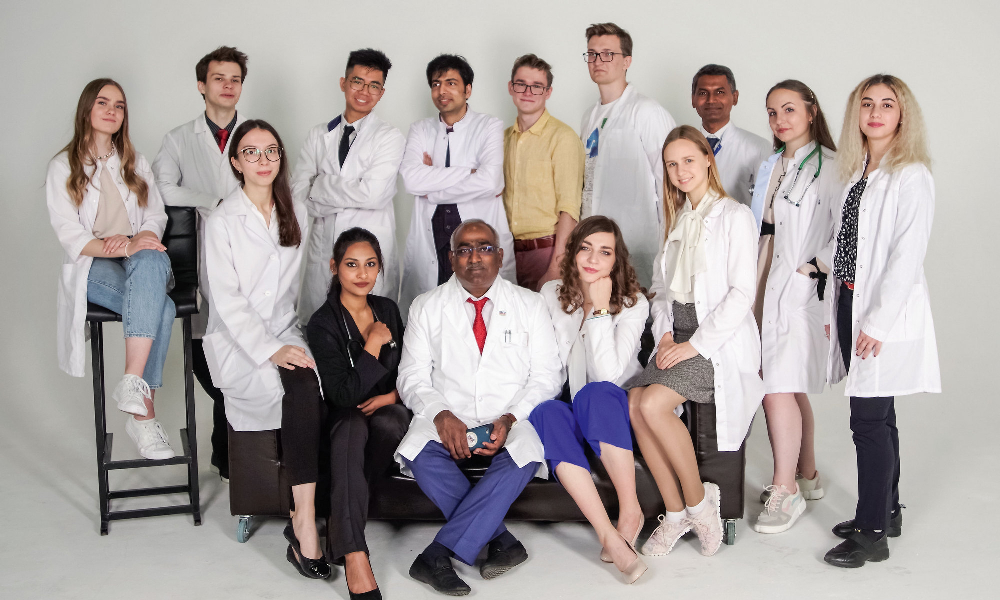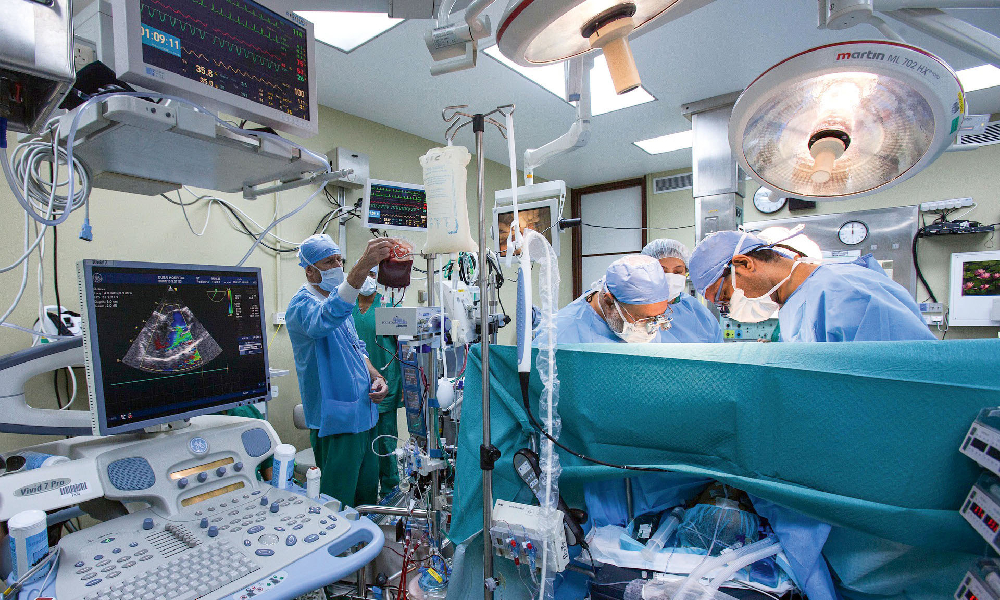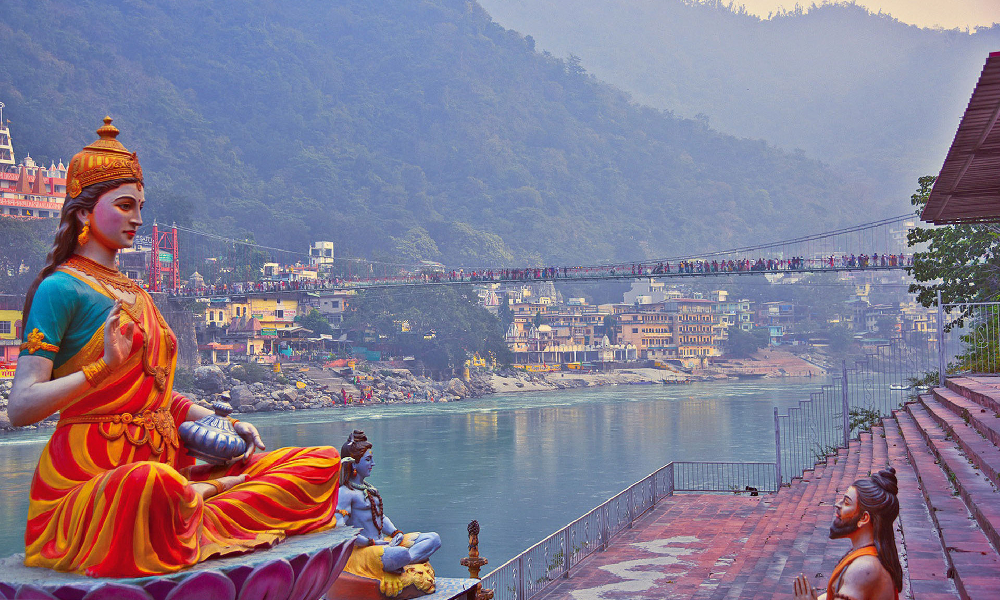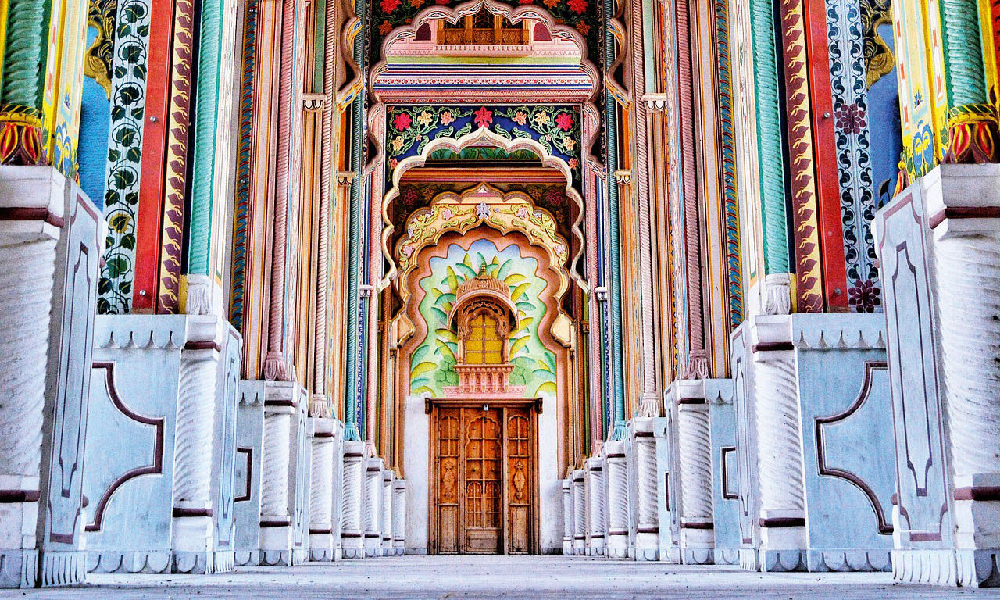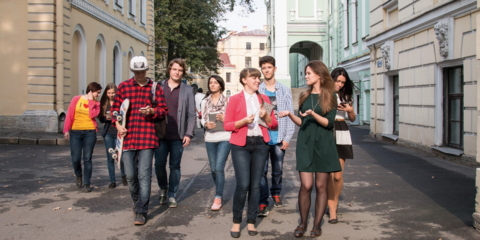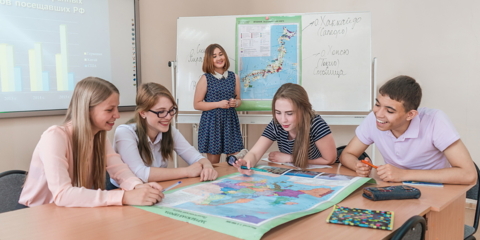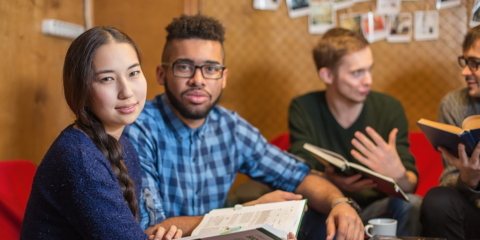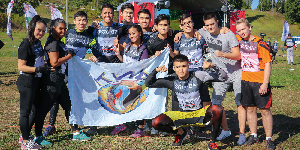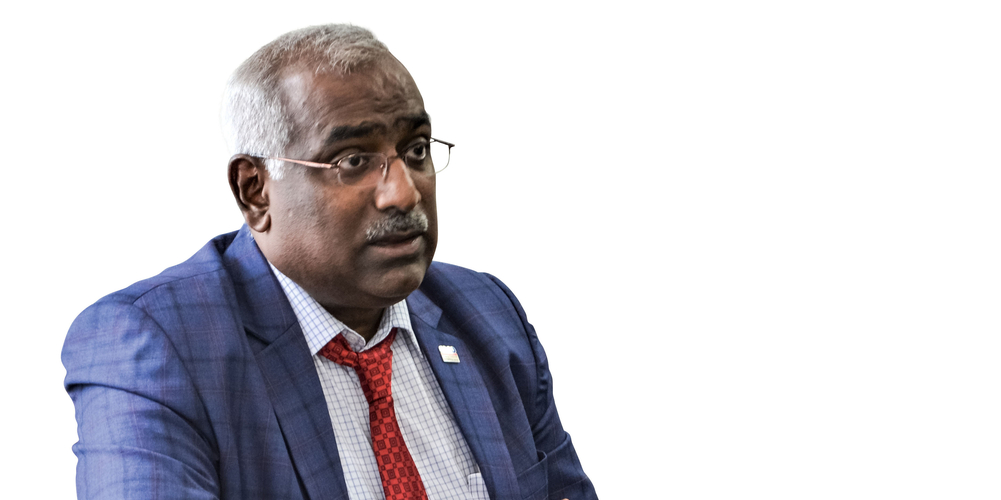
The Alumni Russia media project is implemented by the Global Alumni Alliance supported by the Presidential Grants Foundation, the Ministry of Foreign Affairs of Russia, the Ministry of Science and Higher Education of Russia, federal agencies Rossotrudnichestvo and Rosmolodezh.
Role models
Somasundaram Subramanian is a famous alumnus of the Russian university. Doctor Soma – that's what his colleagues, friends and patients call him – is a talented surgical oncologist who has been saving people’s lives for many years. It was his parents who became role models for him. His father worked at his diagnostic center and was Professor at the medical institute. His mother was an economist and helped him create a private laboratory network. It was customary for Somasundaram’s family to spend much of their earnings on charity and live by the principle – help people today, and you can earn money later.
Such examples of professional competence and philanthropy encourage you to make progress and be an honor to your family. That’s why doctor Soma became an expert in several fields such as surgery, including plastic and maxillofacial surgery, oncology (European certificate), otorhinolaryngology, and healthcare management. However, Soma calls himself just an ordinary doctor.
– For any person, motherland starts with their inner circle. It can be family or just a close friend, and even the team you spend a lot of time with at work. When someone loves their business, family and relatives, values what they have, and is ready to make progress – all of that is their motherland.
Cancer is not a sentence
Doctor Soma beat cancer several times. He underwent three surgeries. Such an experience helps him communicate with people seeking assistance from him.
– I congratulate some patients on their diagnosis at once. When someone falls ill, they start being more careful about their and their relatives' health. They get a chance to recover as they undergo regular follow-up examinations. Cancer is not a sentence, and we shouldn't be afraid of it.
Somasundaram Subramanian, India. Graduate of the Faculty of General Medicine of Moscow Medical Dental Institute named after N. A. Semashko (A. I. Yevdokimov Moscow State University of Medicine and Dentistry). Surgeon, oncologist, supervisor of international education and research projects.
Treat people the way you want to be treated. If you accept it, welcome to our team. That's my advice to students and young doctors who visit me.
Idols
Today the name of Somasundaram Subramanian is well known in medicine. But even such a professional has his idols. Among them are Svyatoslav Nikolaevich Fedorov and Nikolai Nikolaevich Blokhin.
– Svyatoslav Nikolaevich Fedorov taught at Moscow Medical Dental Institute when I was a student. We attended his lectures.
Unfortunately, I didn't meet Nikolai Nikolaevich when I visited N.N. Blokhin Russian Cancer Research Center as a patient. At the end of the 1980s, by the time the USSR collapsed, it was the largest cancer center, which was unrivaled throughout the world.
The Soviet Union had a non-perfect but unique cancer care system. Of course, there were some problems with anesthesia and expendable materials, but cancer care was available in general. In the 1970s, there wasn't a single cancer clinic even in the USA, while the Soviet Union had over 160 clinics. Soviet healthcare was an ideal model.
Today similar systems exist in Canada and Germany. They offer special conditions and affordable prices for patients. The situation is quite different in the USA. American patients are sent to Russia to get high-quality care for less money than in the best US clinics.
- Svyatoslav Nikolaevich Fyodorov (1927-2000)
Soviet and Russian ophthalmologist, eye microsurgeon. He created a fundamentally new and most advanced field in the world ophthalmic surgery – refractive and energy surgery for the correction of myopia, hypermetropia and astigmatism. The technology of refractive operations which was developed by S. N. Fyodorov and became popular in many countries allowed millions of people to get rid of eye problems.
The researcher's fundamental work in the field of implantology, keratoprosthetics, glaucoma, optic nerve atrophy, vitreoretinal and laser surgery has become classics of world ophthalmology.
- Nikolai Nikolaevich Blokhin (1912-1993)
Soviet and Russian surgical oncologist, talented healthcare manager. He established the large cancer center (today N. N. Blokhin Russian Cancer Research Center). He greatly propelled clinical oncology, supervised a variety of successful studies, actively cooperated with colleagues from all over the world, was the head of a great number of various organizations such as the International Committee for the Defense of the World and Society, the Academy of Medical Sciences of the USSR, and others.
The researcher participated in the development of new types of stomach cancer surgery and combination cancer therapy methods. Thanks in large part to Nikolai Nikolaevich, the second half of the 20th century in the USSR became the golden age of medical science.
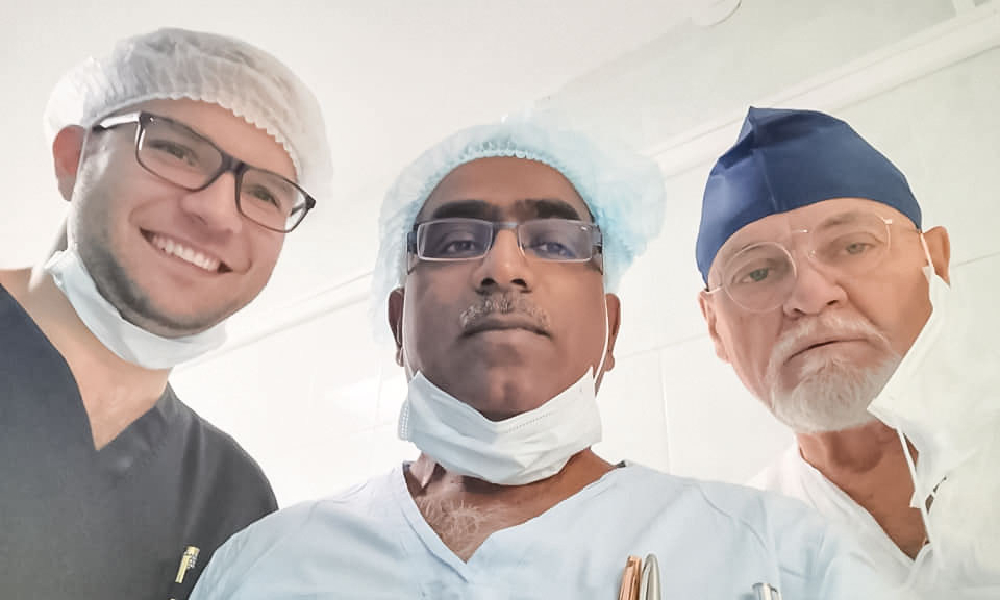
Somasundaram Subramanian with his colleagues
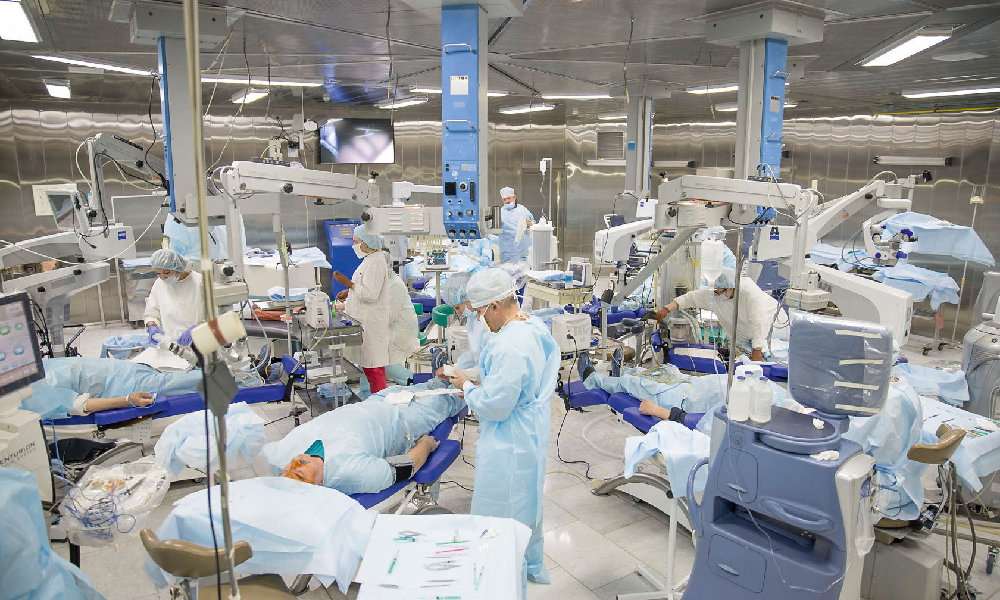
S. Fyodorov Eye Microsurgery Federal State Institution
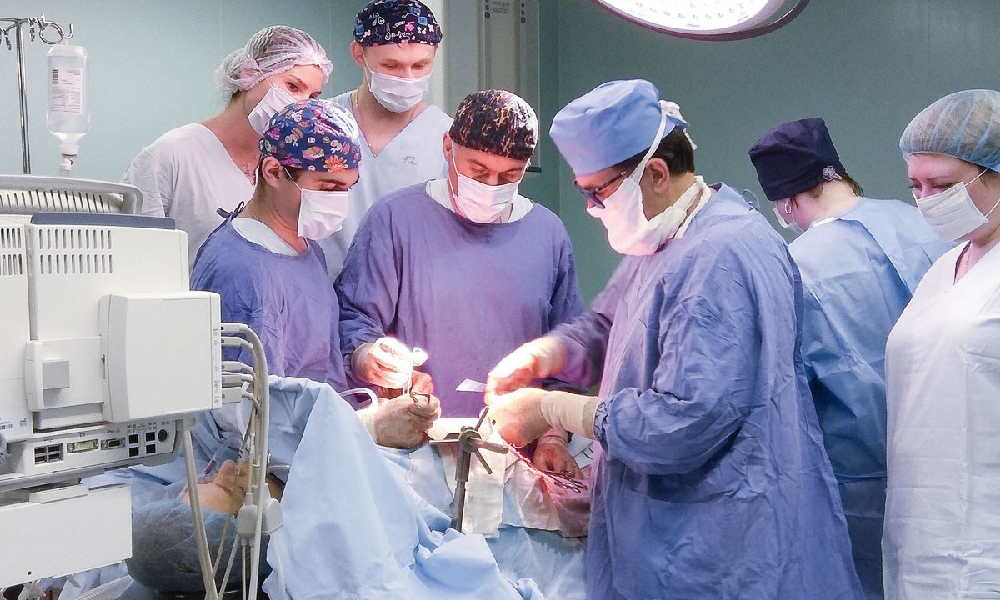
N. N. Blokhin Russian Cancer Research Center
PreviousNextCharity
Doctor Soma is not just a doctor. He is a social activist combating global problems. For example, having become a member of the Anti-tobacco Expert Council of the State Duma of the Russian Federation, he initiated, together with his team, the inscriptions and pictures about the health risks of smoking on cigarette packs. Although, many people disagreed with such an approach in the 1990s. They used to say that the government wanted to deprive them of their only pleasure. Today people don’t think so.
– Over the years, I have managed to implement a lot of charity projects and build several not-for-profit organizations from scratch in various countries: the Eurasian Cancer Research Council, the Eurasian Federation of Oncology. The activity of the Russian research and education center "Eurasian Oncology Program "EAFO" is of considerable importance. It is the center for managing all anti-cancer projects that we have created in Russia and worldwide.
One of the recent projects has gone beyond oncology. Medicine cannot exist without other science, and we should support other fields and specialties. Only close cooperation of researchers in various fields with medical professionals can lead to a breakthrough. To that end, we organized the FIRMST-Spark platform for interdisciplinary research in medicine and technology. Every month we hold the Forum for Interdisciplinary Research in Medical Science & Technology. The event brings together professors from all over the world.
Everything for people
– The greatest achievement in my life is the human capital that I have raised, and not only surgical oncologists. Among them are pathologists, cytologists, histologists, geneticists, surgeons, X-ray diagnosticians, and therapeutists. There are non-oncology doctors and others.
Any money I earn is spent on scholarships for young people who passed a competitive selection for our research and education projects. We help talented young people from Russia and CIS countries to study. For example, we pay 60,000 RUB monthly to some doctors who are going to pursue a second degree.
People sometimes ask me, "Doctor, why are you doing all this? What do you want with them?" The answer is simple. I believe that if I help young and smart people, I can massively augment my work. How many patients will I be able to help alone? As you know, one soldier does not make a battle. We must have an army of specialists. And I am creating this army.
– We live in a time when medicine has become too commercial. In addition, people's resources are completely different. It's one thing when someone comes to undergo a facial procedure. But it's quite a different story when they have cancer and their resources are limited. In such a situation, I don’t charge them for consultations on principle. In the future, patients often donate to our not-for-profit organization according to their resources.
The first patient of mine I performed surgery on was a 75-year-old man with a giant tumor and suspected lung metastases. We had to excise the tumor, preserve the nerves, do reconstructive plastic surgery. The state clinics refused him, and the private ones charged up to 1.5 million RUB for such a surgical procedure. His family had no money. I took it upon myself to perform a surgery for free. By arrangement with the clinic's senior staff, the patient's relatives only paid for anesthesia and hospital stay. Their total expenses did not exceed 100,000 RUB. The procedure lasted for 7.5 hours and was successful – the pulmonary nodule was not a metastasis. The elderly man is still alive, and he is fine.
Advice for students
– I recommend those coming to Russia to study that they choose Russian as their language of instruction, not English.
Russia is a fascinating country. To understand it, you should come here and learn Russian. Many people following this way want to stay here or become civilian ambassadors of Russia all over the world. That's essential. The vast majority of Soviet and Russian graduates who studied in Russian are patriots of the Soviet Union and Russia.
India is a mysterious, wonderful, magical country. It is India that gave the world decimal arithmetic, chess, cotton, and unique architecture.
The full version of the interview is www.alumnirussia.org
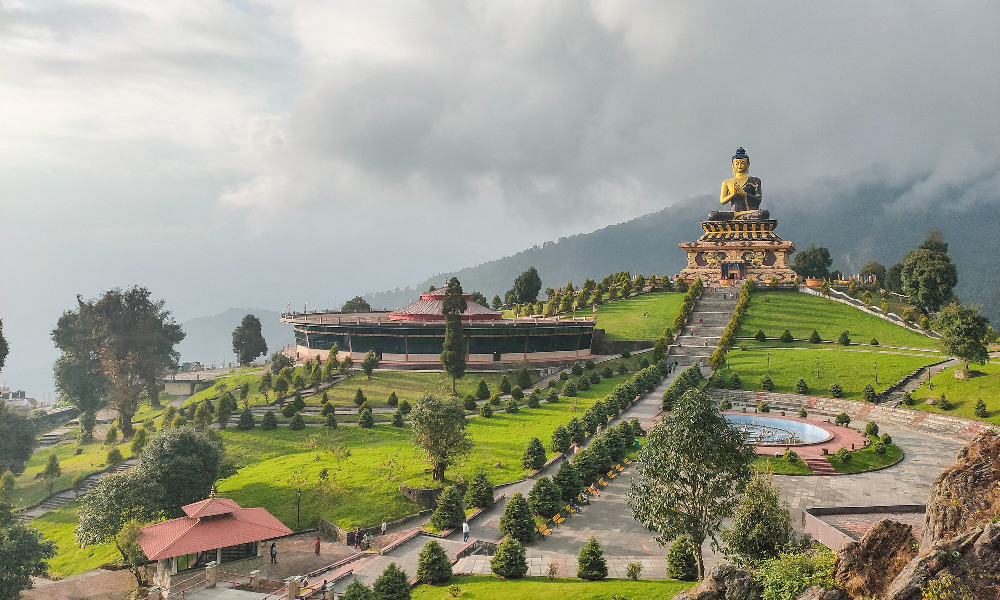
unsplash.com
Buddha Park of Ravangla, Sikkim, India
PreviousNext17.12.2021

